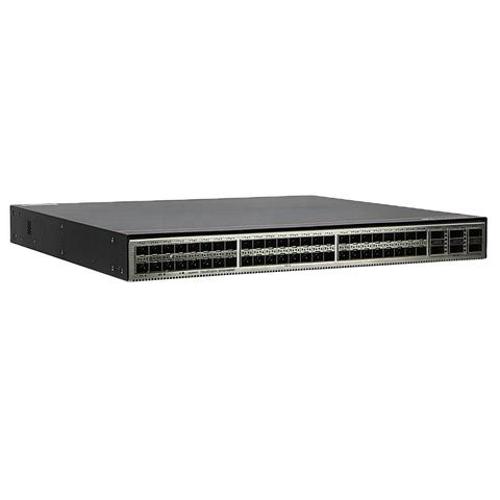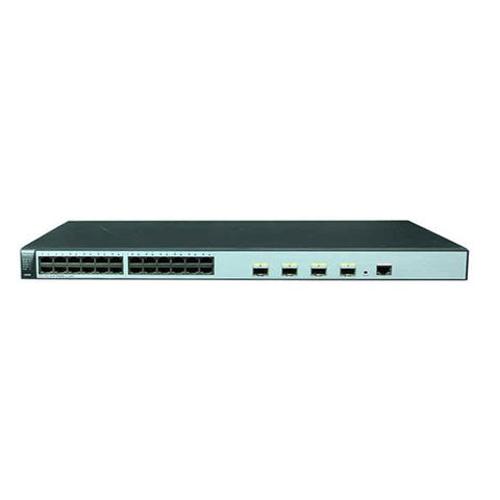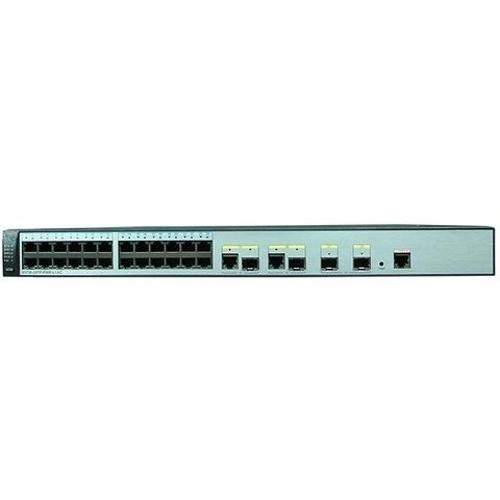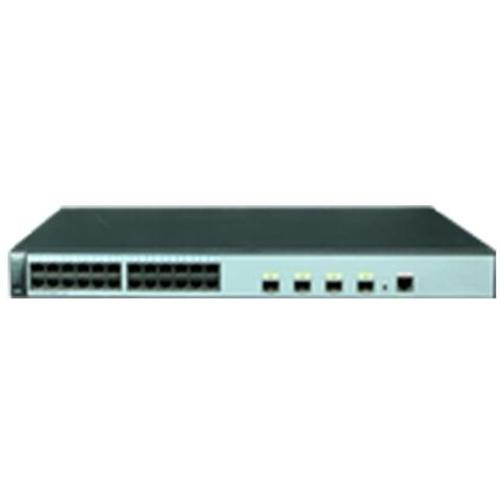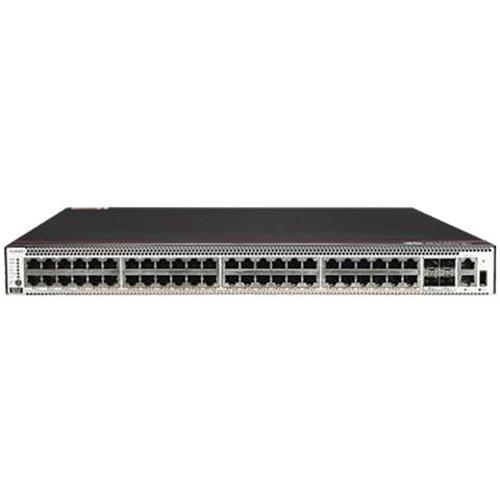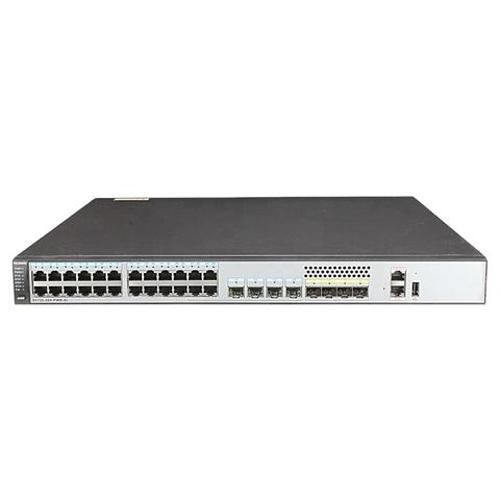Huawei Original S6720S-26Q-EI-24S-AC Outdoor Network Fiber Switch
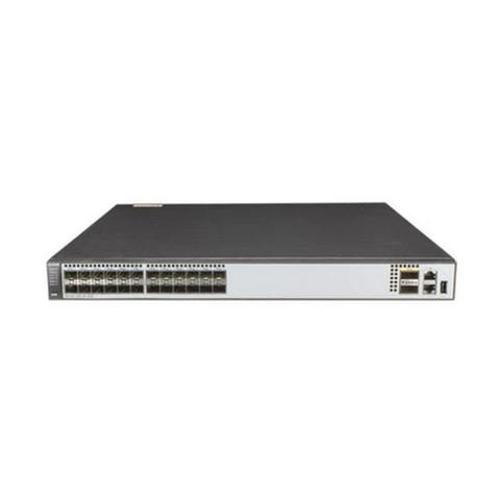
Short Description:
| Item | S6720S-26Q-EI-24S-AC S6720S-26Q-EI-24S-DC |
| Fixed Port | 24×10GE SFP+ , 2×40GE QSFP+ ports |
| Extended slot | Not supported |
| MAC address table | 288k MAC address entries MAC address learning and aging Static, dynamic, and black hole MAC address entries Packet filtering based on source MAC addresses |
| VLAN | 4K VLANs Guest VLAN and voice VLAN VLAN assignment based on MAC addresses, protocols, IP subnets, policies, and ports 1:1 and N:1 VLAN Mapping QinQ and selective QinQ |
| IPv4 routing | Static routing, RIPv1, RIPv2, ECMP, and URPF OSPF, IS-IS, and BGP VRRP Policy-based routing Routing policy |
| IPv6 routing | Static route RIPng OSPFv3 BGP4+ ISISv6 |
| IPv6 features | Neighbor Discovery (ND) PMTU IPv6 ping, IPv6 tracert, and IPv6 Telnet 6to4 tunnel, ISATAP tunnel, and manually configured tunnel ACLs based on the source IPv6 address, destination IPv6 address, Layer 4 ports, or protocol type MLD v1/v2 snooping |
| multicast | Static Layer 2 multicast MAC address MAC-based multicast forwarding IGMP snooping and IGMP fast leave Multicast VLAN MLD snooping IGMP proxy Controllable multicast Port-based multicast traffic statistics IGMP v1/v2/v3 PIM-SM, PIM-DM, and PIM-SSM MSDP MVPN |
| QoS/ACL | Rate limiting on packets sent and received by an interface Packet redirection Port-based traffic policing and two-rate three-color CAR Eight queues on each port WRR, DRR, SP, WRR+SP, and DRR+SP queue scheduling algorithms Re-marking of the 802.1p priority and DSCP priority Packet filtering at Layer 2 to Layer 4, filtering out invalid frames based on the source MAC address, destination MAC address, source IP address, destination IP address, port number, protocol type, and VLAN ID Rate limiting in each queue and traffic shaping on ports |
| MPLS | MPLS, MPLS VLL, L3VPN |
| VPLS | Martini VPLS |
| Reliability | STP(IEEE 802.1d), RSTP(IEEE 802.1w), and MSTP(IEEE 802.1s) BPDU protection, root protection, and loop protection RRPP ring topology and RRPP multi-instance Smart Link tree topology and Smart Link multi-instance, providing the millisecond-level protection switchover SEP ERPS(G.8032 v2) BFD for OSPF, BFD for IS-IS, BFD for VRRP, and BFD for PIM E-Trunk |
| Security | User privilege management and password protection DoS attack defense, ARP attack defense, and ICMP attack defense Binding of the IP address, MAC address, interface, and VLAN Port isolation, port security, and sticky MAC Blackhole MAC address entries Limit on the number of learned MAC addresses 802.1x authentication and limit on the number of users on an interface AAA authentication, RADIUS authentication and TACACS authentication SSH v2.0 Hypertext Transfer Protocol Secure (HTTPS) CPU defense Blacklist and whitelist |
| Super Virtual Fabric (SVF) | Working as the parent node to vertically virtualize downlink switches as one device for management, supports two-layer clients architecture Support as a client node to be managed by SVF parent |
| Management and maintenance | iStack (using service ports as stack ports) MAC Forced Forwarding (MFF) Virtual cable test Ethernet OAM (IEEE 802.3ah and 802.1ag) Local port mirroring and remote switched port analyzer (RSPAN), allowing an observing port to forward packets Remote configuration and maintenance using Telnet SNMP v1/v2c/v3 RMON Web NMS System logs and alarms of different levels GVRP MUX VLAN |
| Operating environment | Operating temperature: 0-1800 m, 0-45℃; 1800-5000 m, decrease 1℃ when the altitude increases every 220 m Relative humidity: 5% to 95% (non-condensing) |
| Input voltage | AC: Rated voltage range: 100 V to 240 V AC, 50/60 Hz Maximum voltage range: 90 V to 264 V AC, 50/60 Hz DC: Rated voltage range: –48 V to –60 V, DC Maximum voltage range: –36 V to –72 V, DC |
| Dimensions (W x D x H, mm) | 442×420×44.4 |
| Typical power consumption | AC: 109W(without subcard) DC: 101W(without subcard) |
xxxxxxx.
